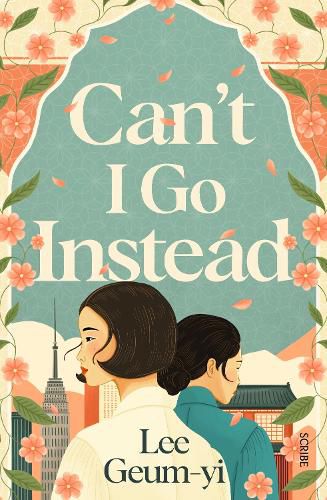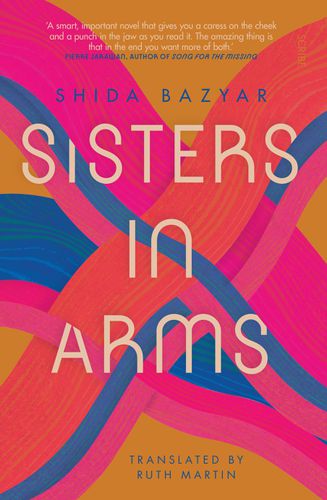This month we're reading fiction translated from Japanese, Korean, German and Chinese.
Before We Say Goodbye by Toshikazu Kawaguchi (translated from Japanese by Geoffrey Trousselot)
Toshikazu Kawaguchi's poignant Before We Say Goodbye explores the age-old question: what would you do if you could travel back in time? More importantly, who would you want to meet, maybe for one last time?
The regulars at the magical Cafe Funiculi Funicula are well acquainted with its famous legend and extraordinary, secret menu time travel offering. Many patrons have reunited with old flames, made amends with estranged family, and visited loved ones. But the journey is not without risks and there are rules to follow. Travellers must have visited the cafe previously and most importantly, must return to the present in the time it takes for their coffee to go cold.
Can't I Go Instead by Lee Geum-yi (translated from Korean by An Seon Jae)
Can't I Go Instead follows the lives of the daughter of a Korean nobleman and her maidservant in the early 20th century. When the daughter's suitor is arrested as a Korean Independence activist, and she is implicated during the investigation, she is quickly forced into marriage to one of her father's Japanese employees and shipped off to the United States. At the same time, her maidservant is sent in her mistress's place to be a comfort woman to the Japanese Imperial army.
Years of hardship, survival, and even happiness follows. In the aftermath of WWII, the women make their way home, where they must reckon with the tangled lives they've led, in an attempt to reclaim their identities, and find their place in an independent Korea.
Sisters in Arms by Shida Bazyar (translated from German by Ruth Martin)
Kasih, Hani, and Saya have shared a deep friendship since school and the years they lived in the same public housing estate. Kasih and Hani still live in the same city, but now Saya is returning and they have a lot to catch up on. Yet amid the laughter and determination of their sisterhood, it’s clear to the three young women that they haven’t escaped the racism that has accompanied their daily lives since childhood: the glances, the chatter, and the outright right-wing terror.
Sisters in Arms is a lyrical, explosive novel about the importance of friendship — the kind of extraordinary friendship that brings stability to an unstable world. Until one dramatic night that will change everything for the three women, propelling Kasih to tell the tale of themselves.
Mild Vertigo by Mieko Kanai (translated from Japanese by Polly Barton)
Housewife Natsumi leads a small, unremarkable life in a modern Tokyo apartment with her husband and two sons:she does the laundry, goes on trips to the supermarket, visits friends and gossips with neighbours. Tracing the conversations and interactions she has with her family and friends as they blend seamlessly into her internal monologue, Mild Vertigo explores the dizzying reality of being unable to locate oneself in the endless stream of minutiae that forms a lonely life confined to a middle-class home, where both everything and nothing happens.
With shades of Clarice Lispector, Elena Ferrante and Lucy Ellmann, this verbally acrobatic novel by the esteemed novelist, essayist and critic Mieko Kanai - whose work enjoys a cult status in Japan - is a disconcerting and radically imaginative portrait of selfhood in late-stage capitalist society.
Golden Age by Wang Xiaobo (translated from Chinese by Yan Yan)
Wang Er, a twenty-one-year-old ox herder, is shamed by the local authorities and forced to write a confession of his crimes, but he instead takes it upon himself to write a modernist literary tract. Later, as a lecturer at a chaotic, newly built university, Wang Er navigates the bureaucratic maze of 1980’s China, boldly writing about the Cultural Revolution’s impact on his life and those around him. Finally, alone and humbled, Wang Er must come to terms with the banality of his own existence.
But what makes this novel both hilarious and important is Xiaobo’s use of the awkwardness of sex as a metaphor for all that occurred during the Cultural Revolution. This achievement was revolutionary in China and places Golden Age in the great pantheon of novels that argue against governmental control.






